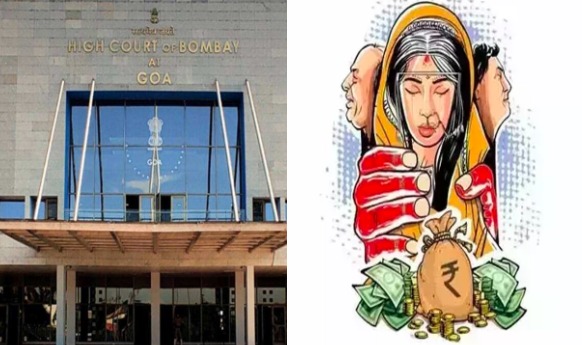
The Goa bench of the Bombay High Court recently held that even if a daughter is given dowry at the time of her marriage, her entitlement to the family’s possessions does not end there, and she can still lodge a claim.
A single bench of Justice Mahesh Sonak disregarded the contention of a family led by four brothers and a mother that because the four daughters were paid dowry at the time of their wedding, they had no title to the family’s holdings.
“Even if it is considered that the daughters received any dowry, this does not entail that the daughters have no title to the family property. The rights of the girls could not have been destroyed in the way in which the brothers sought to extinguish them following the father’s demise,” the bench stated.
The single bench was considering a petition filed by a woman named Terezinha Martins David, seeking an injunction to prevent her mother and four brothers from establishing any third-party interests in her family’s assets.
The appellant was the house’s eldest married daughter. Her four brothers and mother, however, did not offer her a portion in any of the assets.
She stated that the mother and other sisters had agreed to a transfer agreement in favor of two of her brothers in 1990. The family’s store and residence were passed to the two brothers as a result of this transfer agreement.
She said that she was only made aware of the situation in 1994, and that she then instituted proceedings before the civil court. Her complaint was dismissed by the civil court; nevertheless, an appeal was granted by the appellate court, prompting her to seek the High Court.
Regarding this, Justice Sonak stated,
“There is no evidence to back up such a claim. Just stating that there was some family arrangement through which four daughters of Antonio (father) and Matilda (mother) were paid dowry at the time of their marriages is inadequate to set out the elements of the family arrangement or an oral division. Second, according to Article 2184 of the Portuguese Civil Code, a split that is just a severance of a joint status cannot be done orally and must be done through a written instrument.”
The brothers also claimed that the current proceedings were restricted by the Limitation Act, which states that an action must be filed within three years after learning of the decree or execution of the deed.
In this case, the brothers claimed that the transfer deed was signed in 1990 and the complaint was filed in 1994.
However, Justice Sonak pointed out that the appellant had stated that she filed the complaint within six weeks of learning about the alleged crime. The bench also pointed out that the brothers failed to show that the appellant was aware of the alleged deed in 1990.
With these considerations, the bench overturned the transfer deed and ordered an injunction in favor of the appellant.




